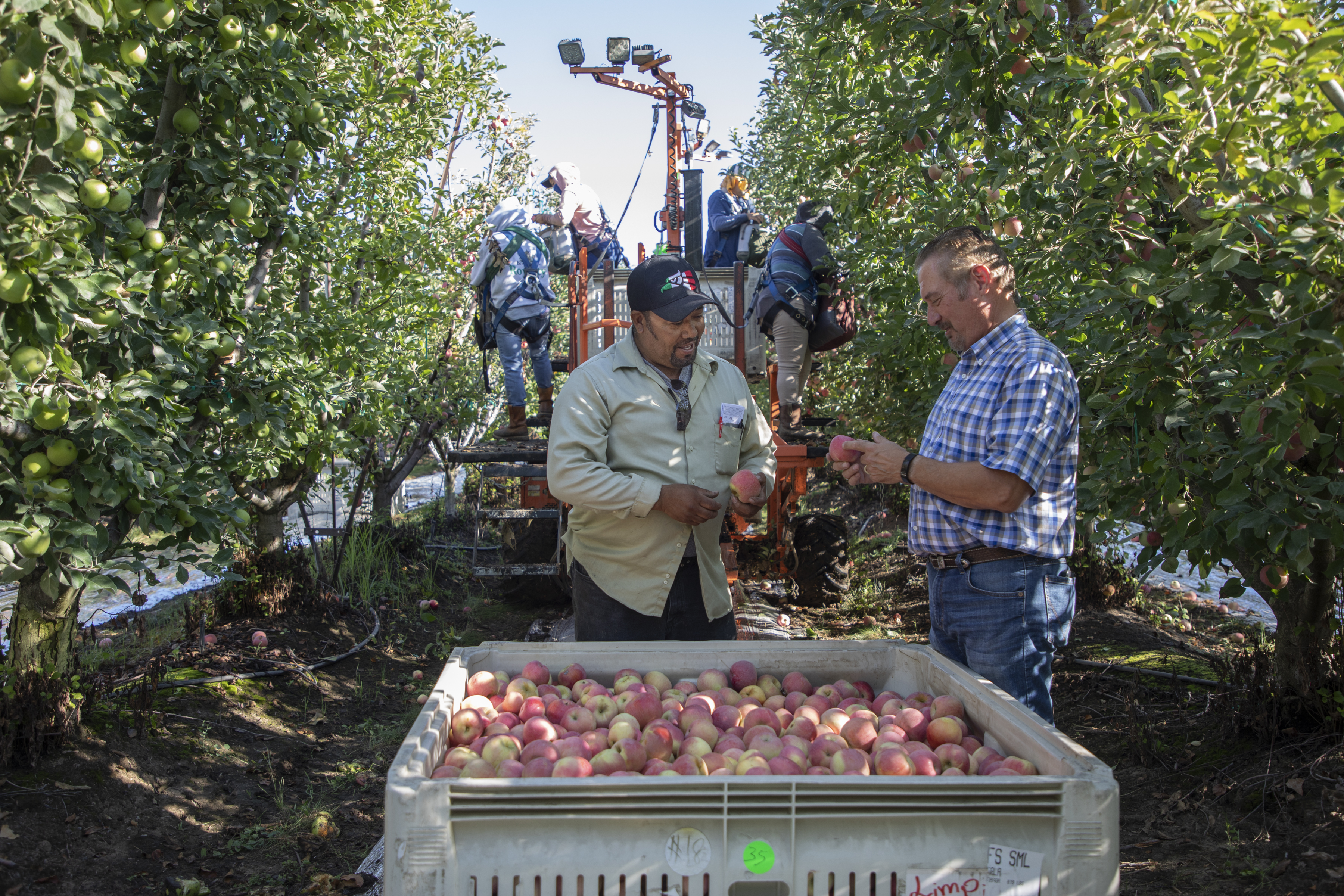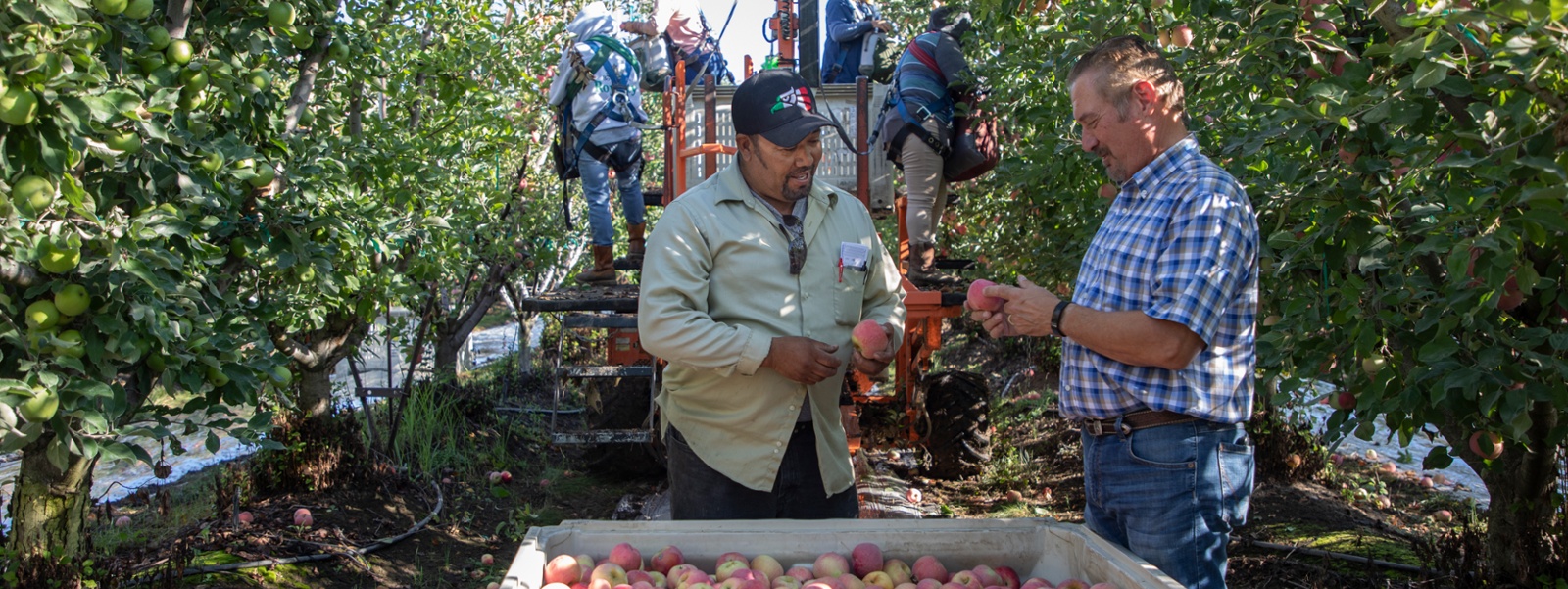Commentary: A bad union bill is signed: What should farmers do?




By Carl Borden and Bryan Little
Signed into law by Gov. Gavin Newsom on Sept. 28, Assembly Bill 2183 dramatically rewrote California law governing how labor unions can become certified to represent agricultural employees for collective bargaining purposes.
Effective Jan. 1, the bill by Assemblyman Mark Stone, D-Scotts Valley, will prompt cautious farmers, ranchers and other agricultural employers to educate their employees so they won’t be vulnerable to deceptive union organizing pitches that promise benefits in return for 3% of their wages in union dues.
Since taking effect in 1975, the California Agricultural Labor Relations Act has decreed that a union may be certified by a two-step process. First, a majority of an agricultural employer’s employees must sign cards asking the Agricultural Labor Relations Board, which administers the Act, to hold a secret-ballot, polling-place election. Second, the ALRB conducts the election. If a majority of employees vote for union representation, the union is certified to represent them.
But AB 2183 discarded that secure process, replacing it with two options for employers to choose from: a labor peace election or a nonlabor peace election.
In choosing labor peace, an employer agrees annually to express no public opinion about union representation and to give union organizers access to the workplace. AB 2183 seeks farmers’ concession on access after the U.S. Supreme Court ruled in 2021 that it is unconstitutional to force them to allow organizers on their land or at their businesses.
Under this option, employees will vote in a flawed, untrustworthy mail-in election that can include union involvement in acquiring, completing and returning ballots, with opportunities for undue influence and trickery. That very scenario led the California Farm Bureau to oppose AB 2183 and previous “card check” union organizing bills.
Under the second option, an employer not opting for labor peace status will retain free-speech and private-property rights—but at a big cost. No true election is held among the employees. Instead, a union seeking to organize the workforce may initiate a card-check campaign, where the union can simply gather signed authorization cards and petition the ALRB for certification with majority support.
The employer then must submit to the ALRB and union a list of employees in the pay period before the petition’s submission. If the ALRB finds the union has not demonstrated majority support, the union would have 30 days while in possession of the employee list to coerce what will likely be a small number of employees needed to sign authorization cards to demonstrate majority support.
In signing AB 2183, Gov. Newsom also announced an agreement in principle to pursue in the 2023 legislative session significant changes to the bill, perhaps giving him cover for signing a misguided measure he strongly indicated he would veto just weeks earlier.
Sadly, the proposed revisions do not address the “procedural integrity” problems cited by the governor and his office in late August. Instead, the supplementary agreement would eliminate the labor peace election option and leave only a card-check process involving union organizers collecting signed authorization forms.
So, how should agricultural employers approach this new world that AB 2183 will bring about?
The first step is to communicate with your employees. Ensure they understand their compensation and, well in advance, when work will begin and end each day. Employers should avoid sudden changes in work schedules that could force employees to rearrange daycare, transportation of children to schools and other aspects of personal lives.
Second, employers should ensure that their pay, benefits and working conditions not only meet legal requirements but exceed them, so they are competitive with employers in your area. Employers should also make sure that payroll, workplace safety and employee relations practices—including supervisor and foreperson treatment of employees—are sound.
If agricultural employees believe they are treated fairly and equitably, they are less likely to turn to farmworker advocates and union organizers or other third parties for information or help.
Employers seeking guidance may contact the Farm Employers Labor Service. FELS® provides products and information to help understand federal and state workplace requirements as well as the latest legislative and regulatory developments.
FELS labor management consultants can provide a communications bridge to your workforce. They are bilingual and bicultural and have deep experience in working with agricultural businesses.
In this new adversarial world, reaching out for assistance—and an ally—may identify and resolve issues, while helping farm businesses secure employees’ trust and loyalty as they perform the important work of California agriculture.
(Carl Borden, senior counsel for the California Farm Bureau, may be contacted at cborden@cfbf.com. Bryan Little, chief executive officer for Farm Employers Labor Service and Farm Bureau’s employment policy director, may be contacted at blittle@cfbf.com.)




